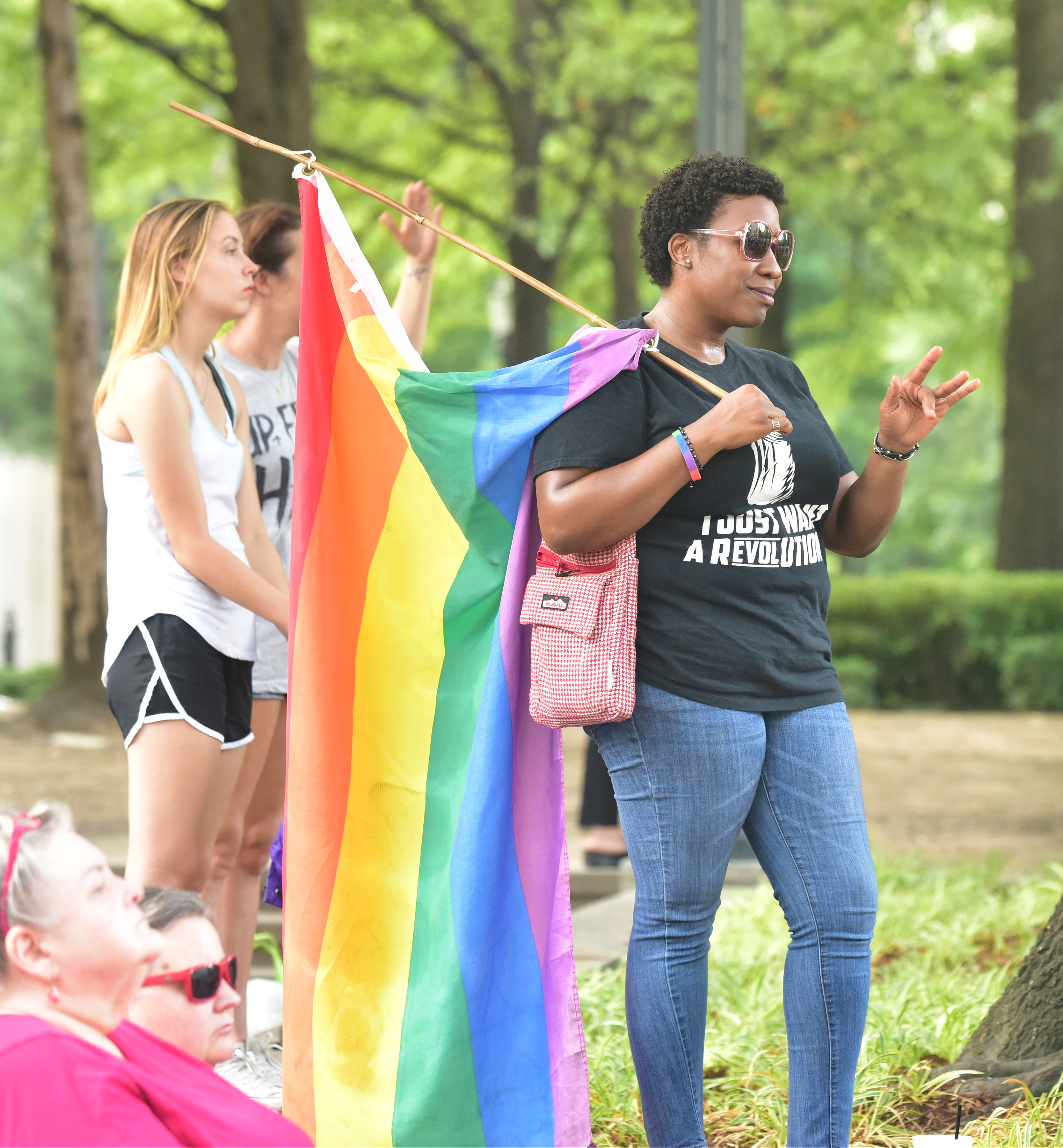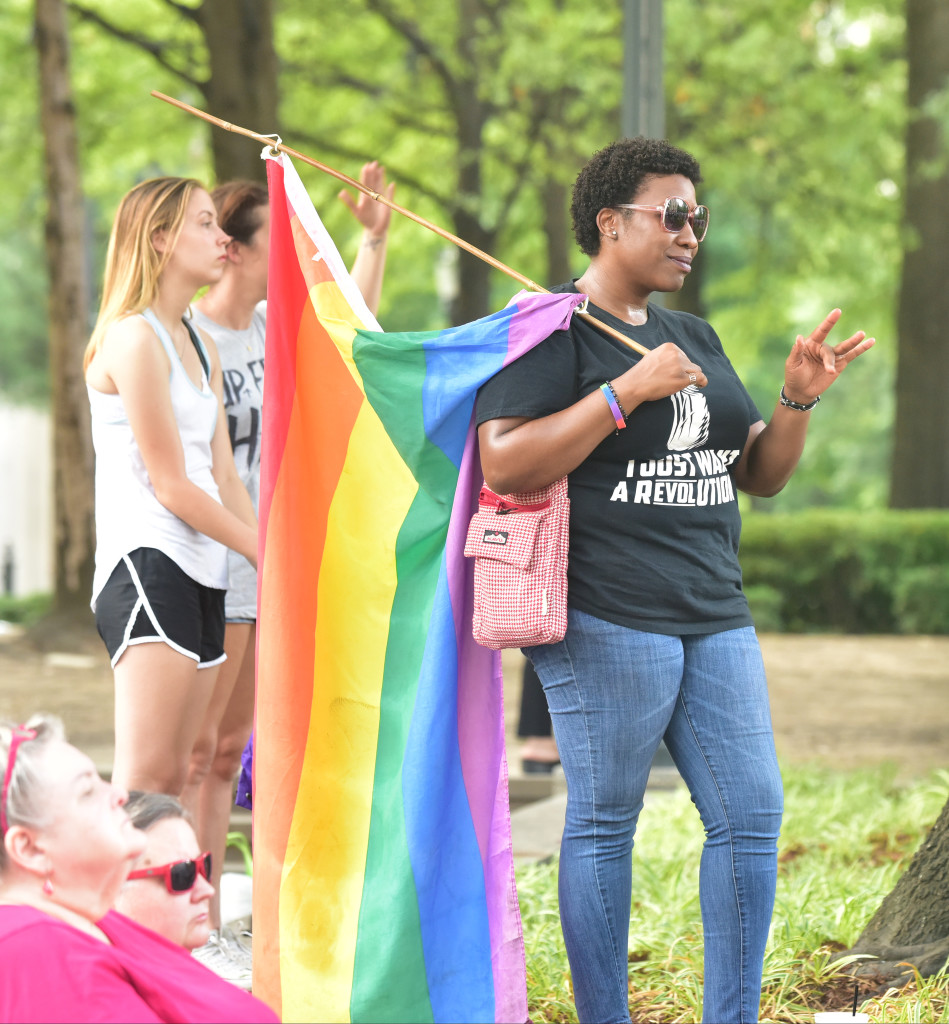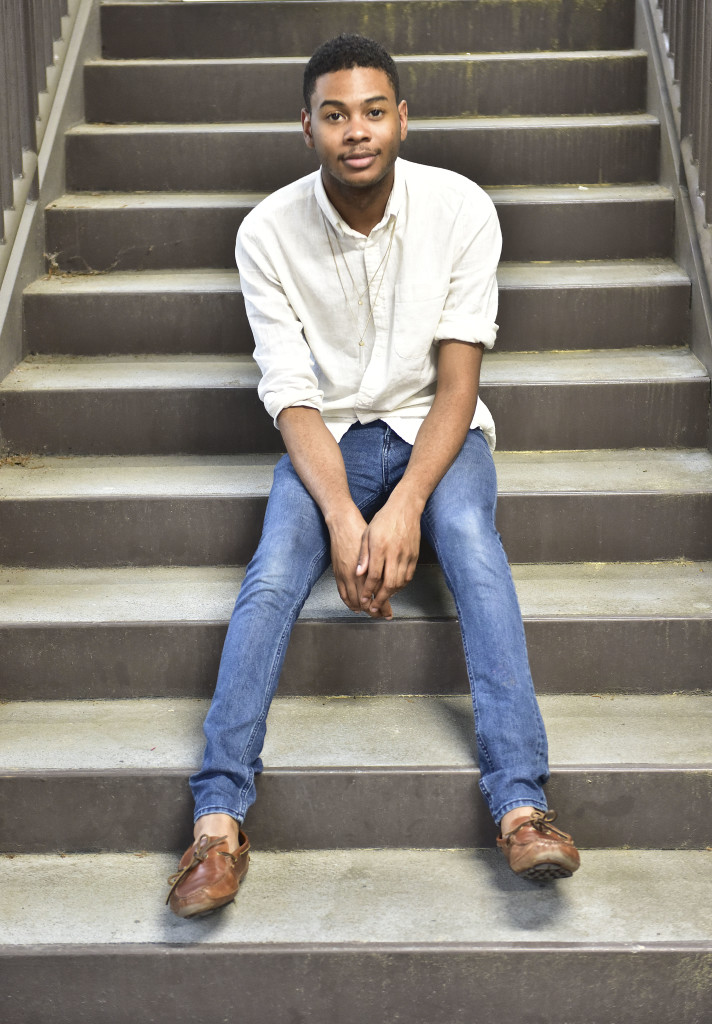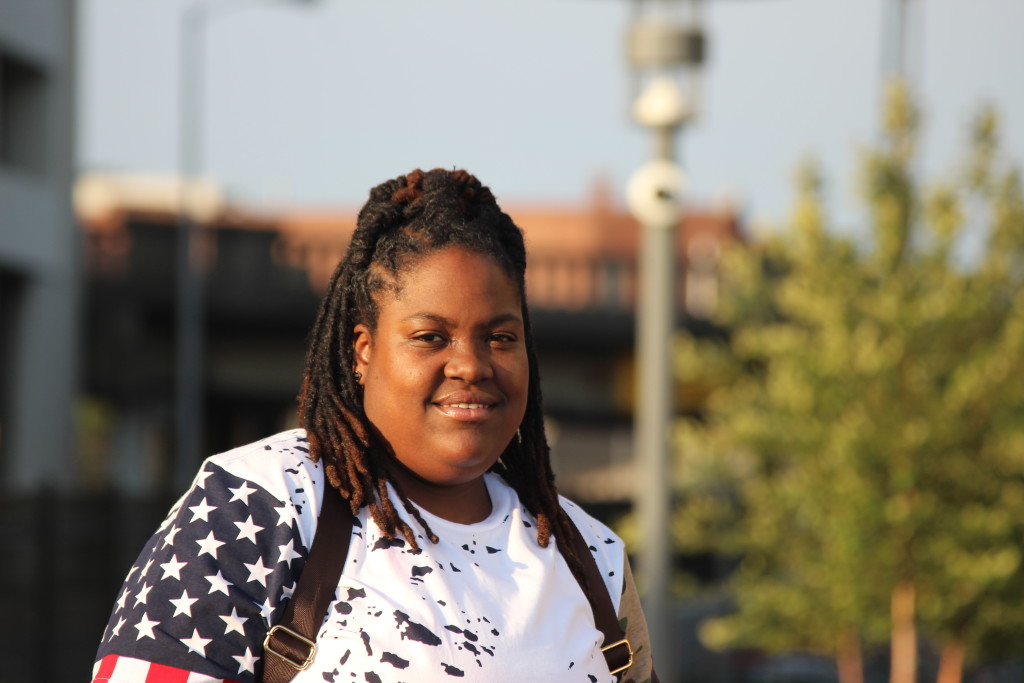
By Ariel Worthy
The Birmingham Times

“Being gay in America is hard. Being black in America is hard. Imagine being both.”
Carlton Bell posted those words to his Facebook page a day after the mass shooting this month that resulted in the deaths of 49 people in a gay nightclub in Orlando.
How the Lesbian Gay Bisexual Transgender (LGBT) community is viewed has been widely discussed since the shootings that sent tremors throughout the country.
But some feel a deeper discussion isn’t being held: how minorities in the gay community are treated.
Challenges for any member of the LGBT community in Alabama have been difficult enough. The state was one of the few to challenge the U.S. Supreme Court ruling that legalized same-sex marriage and many probate court judges in the state, with backing from Chief Justice Roy Moore, refused to issue marriage licenses to gay couples.

Bell, 26, said that being black and gay is especially difficult because of opposition from both the black and white communities. It is often hurtful the way he is treated, Bell added.
“It’s the worst feeling in the world when someone moves their kid away from sitting by me,” he said. “It’s like a punch in the throat.”
Bell, who is a store manager in the Galleria, said he has never been directly offended by people because of his homosexuality, but often experiences a lot of stereotypes and stares.
“I was talking to this woman at work and she said, ‘I know you know about fashion,’” Bell recalled. “She really wanted me to do the ‘Yes ma’am,’ ‘honey child’ thing with her and that’s really not me, so it was really uncomfortable.”
Segregation
Bell is not the only person who as a member of the black LGBT community has had to face challenges.
Stephanie Patterson, 29, said there is a lot of segregation in the Birmingham LGBT community where groups are often split between black and white, she said.
“In most large cities there is Gay Pride – which is majority white – and then they have Black Gay Pride. Here in Birmingham the black gay community will go to [majority white clubs] Quest and Al’s, but they refuse to come to our clubs and our events,” she said.
Patterson said during Pride Week, her organization, Lesbians Living Life, was faced with having separate parties divided by race.
“We can’t seem to understand, with there being so much discrimination against homosexuals in the South, why there is still a black and white discrimination in the gay community,” she said.
Patterson, who is from Montgomery, said the issue of discrimination in the LGBT community annoys her. “I have a few white gay friends, and I know most of them from work,” she said. “But they will only deal with me through work because if they take me around their other gay friends, they will feel some type of way around them. It doesn’t allow people with common interests of different races to hang with each other.”
According to Gina Mallisham, a coordinator at Birmingham AIDS Outreach, there is class, economic and gender segregation in the LGBT community in the South.
“It’s scary because from the outside you can’t see it,” said Mallishan, who is also a coordinator for the SHOUT LGBTQ Film Festival. “The trans people aren’t accepted by the rest of the queer community like they should be, and impoverished people aren’t accepted by those who have done well for themselves. It’s sort of reminiscent to me of the first African-Americans making it for themselves and then shutting out everybody who hasn’t gotten any money.”
‘Tokenized’
According to Chris Campbell, who is vice president at Central Alabama Pride (CAP) it often seems as if the white LGBT community wants to have a quota of black people within their groups.
“In Birmingham they still just want to get those numbers in those groups, and you end up being tokenized,” he said.
Campbell said he was recently approached by a member of the oldest LGBT organization in Birmingham and asked to join.
“He even said out of his mouth, ‘You know we’ve only had one black queen.’ Almost 40 years, and they’ve only had one black member.”
Even in his own job at CAP, Campbell said he is one of the few black members in the organization’s 38-year history.
“I didn’t get on this Central Alabama Pride board because I’m black, because I don’t see color,” Campbell said. “Ironically enough, since I’ve been on the board there have been more black headliners and more black people who want to get involved; and I’m the contact.”
Mallisham said she has never been the one to give the voice of black people. She grew up in Tuscaloosa in what most people would consider privilege, and did not live around majority black people, she said.
“I can’t tell you what it’s like to be like most black people in the South, because I’m not like most black people in the South,” Mallisham said.
Campbell, on the other hand, did not associate with white people until he attended the University of Alabama, he said.
“It shocks people to know that I attended Parker High School (in Birmingham),” Campbell said. “I was just raised to not see color.”

Optimistic
Campbell explained that there are two sides to the LGBT community in Birmingham: the mainstream side, where they have to fill quotas, and the people on the other side [blacks] who feel that blacks part of the ‘mainstream’ organizations are copouts “because we’re not at their events and a part of their planning processes,” Campbell said. “They sometimes feel like we’re trying to be something we’re not, or we’re not black enough. I get it all the time: ‘Chris you’re not black.’ Take out the LGBT part of it, there is still so much racism in the black community.”
That points to another problem faced by blacks in the LGBT community: bias from within, according to some. Mallisham said she spends time with LGBT groups that are diverse because of how she has been treated by the black community.
“The truth is, I feel safer when I’m not in an all-black community,” Mallisham said. “Because even though an all-white community might say, ‘I don’t quite fit in,’ they aren’t going to give me a hard time about it.”
She added: “I wish we had a microphone that could reach both communities at the same time, because they’re both saying the same thing, there shouldn’t be a Pride and Black Pride like Atlanta does. We should just have one big happy Pride.”
Mallisham is optimistic that life will improve for all members of the LGBT community.
“We’re at this point where people are appalled when people do something outlandishly racist,” Mallisham said. “I feel like we’ll get to a point where everyone is agreeably appalled when someone does something that’s outrageously homophobic.”



